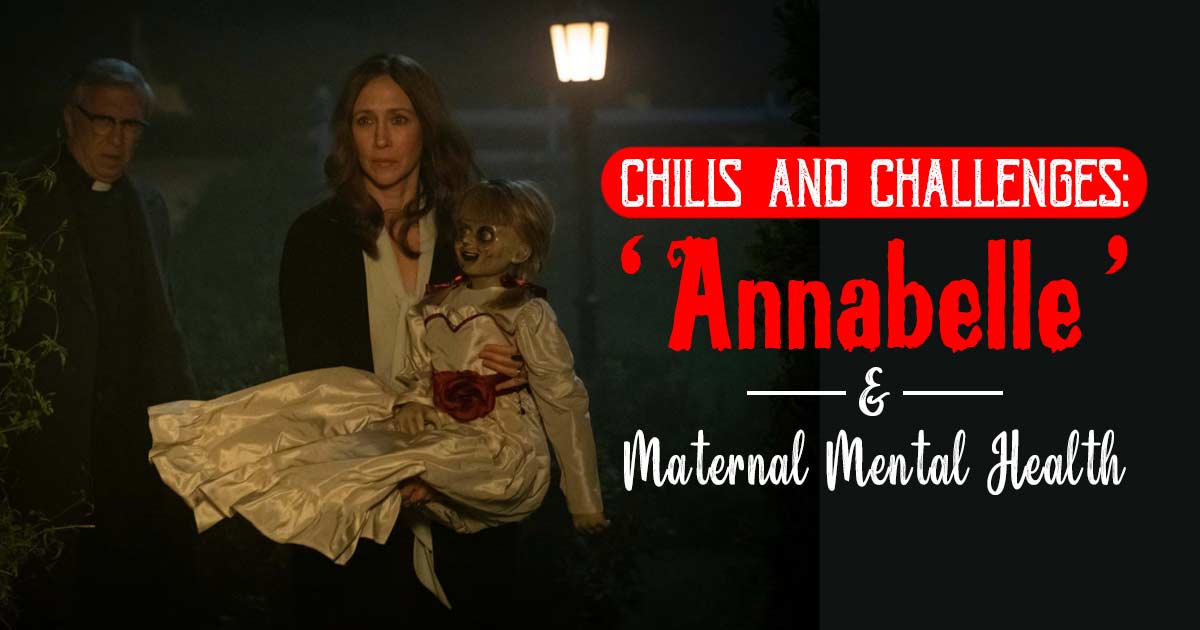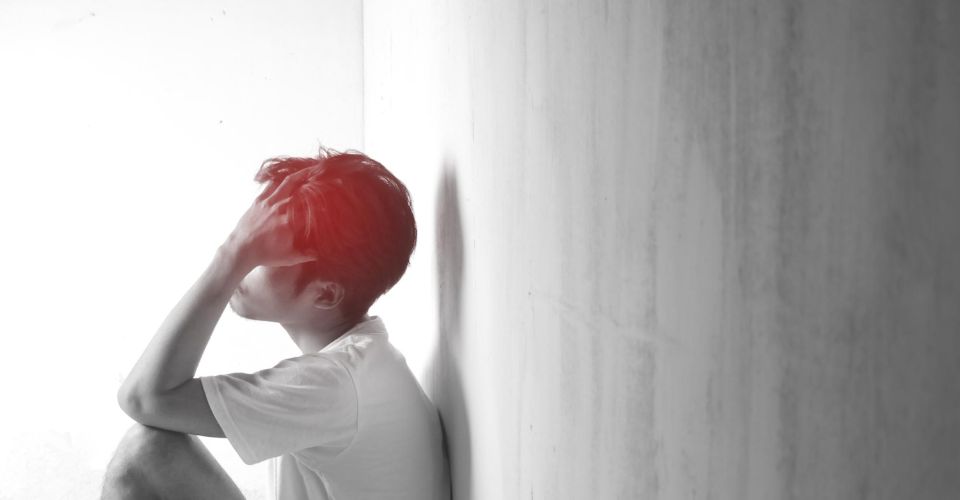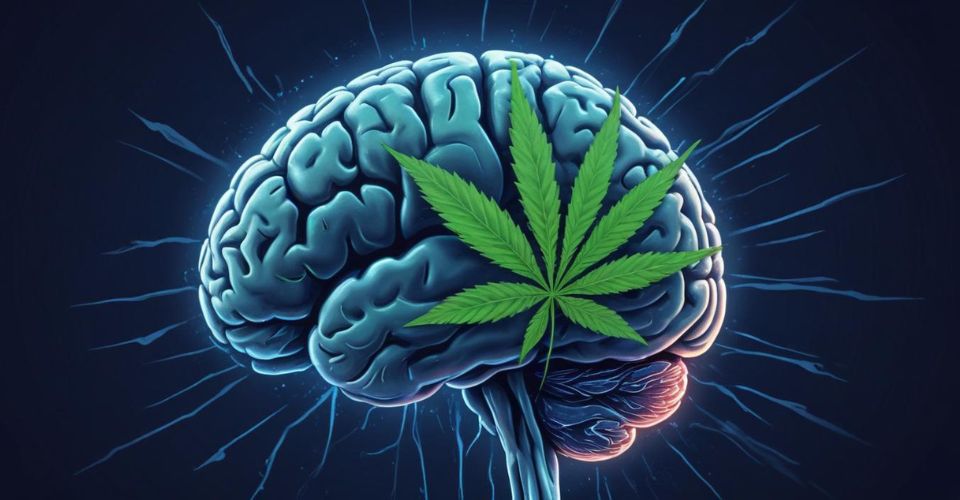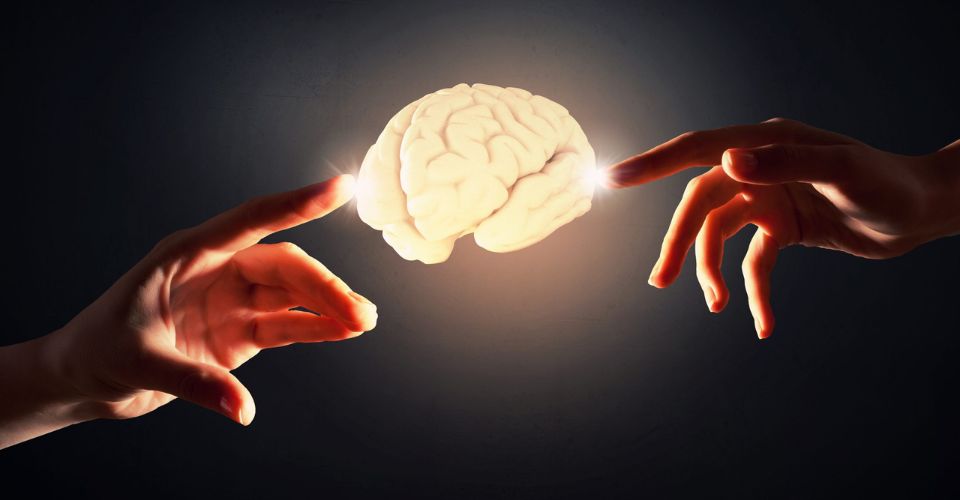The horror genre is often associated with suspense, fear, and supernatural elements, but it can also serve as a powerful medium to explore complex and sensitive themes. The Annabelle film series—consisting of Annabelle (2014), Annabelle: Creation (2017), and Annabelle Comes Home (2019)—offers a unique lens through which one can examine maternal depression, grief, and trauma.
These films in The Conjuring Universe franchise, while primarily centered on supernatural horror, subtly weave in narratives of maternal struggles. These provide viewers with a thought-provoking exploration of the emotional challenges faced by mothers in harrowing circumstances.
Annabelle (2014): Maternal Trauma, Grief, And Sacrifice
In Annabelle (2014), directed by John R. Leonetti, the story revolves around a vintage doll that becomes a conduit for supernatural forces. While the primary focus is on the doll’s malevolent nature, the film introduces audiences to a young couple, John and Mia Form, who are expecting their first child.
Mia Form, portrayed by Annabelle Wallis, embodies the anticipation and excitement of impending motherhood. However, her dreams are shattered when the couple becomes victims of a violent home invasion, resulting in the suicide of their neighbor Annabelle Higgins hugging a rag doll. This traumatic event becomes the catalyst for Mia’s trauma, as she must grapple with the aftermath of an assault as a vulnerable expecting woman.
As the rag doll becomes haunted, Mia and her new-born daughter, Leah, become the subject of supernatural torment. The hauntings are presented as a metaphor for Mia’s manifesting trauma, in the form of:
- Hallucinations
- Emotional outbursts
- Memory lapses
- Unexplained fear
- Self-doubt
- Guilt
- An obsession with the invasion that almost cost her her child
Mia’s journey throughout the film is also a testament to maternal instinct and the lengths a mother is willing to go to protect her child, even in the face of supernatural horrors. As she battles against malevolent spirits to safeguard her newborn, the film underscores the strength and resilience inherent in motherhood.
While not explicitly explored, Mia’s experiences also touch on the isolation and postpartum depression that can accompany new motherhood. The film’s tense atmosphere and Mia’s growing sense of helplessness effectively convey the emotional toll that motherhood can take on a woman, especially in the wake of trauma.
The supporting characters of Mrs Sharon Higgins and the bookseller Evelyn also portray the complexities of motherhood. Mrs. Higgins is devastated when her daughter Annabelle joins a demonic cult and runs away from home. She desperately takes resort in religion but in vain, as her daughter, visibly unstable, returns and kills her parents.
Evelyn, who helps Mia save Leah, is shown to be haunted by grief and guilt. Her infant daughter had perished in a car accident and she had always blamed herself for the death. However, in offering to save Mia and Leah from the demonic forces, she redeems herself. Both Mrs. Higgins and Evelyn expose the pitfalls of poor mental health in mothers, including the rarely discussed abandonment and maternal guilt.
Annabelle – Creation (2017): Maternal Grief And Redemption
Directed by David F. Sandberg, Annabelle: Creation (2017) serves as a prequel to the original film, delving into the origins of the malevolent doll. It introduces the Mullins family, Esther and Samuel Mullins, who provide shelter to a group of orphaned girls and a nun after a tragic accident claims the life of their own daughter, Annabelle.
Portrayed by Miranda Otto, Esther Mullins is depicted as a grief-stricken mother haunted by the untimely death of her daughter, creating a pervasive atmosphere of unease within the Mullins’ household. Following the tragic loss, Esther and her husband turned to fervent prayers, desperately seeking any divine intervention to reunite them with their beloved child. In response to their plea, an enigmatic and otherworldly entity answered their call, briefly granting them a glimpse of Bee’s spirit. However, this mysterious being convinced them to transfer Bee’s essence into one of Samuel’s handcrafted dolls.
Initially, the couple eagerly agreed to this arrangement, but their elation was short-lived, as they soon discovered that their actions had unwittingly drawn the attention of a malevolent entity—a demon in search of a human host. The haunting doll, in the process, becomes a metaphor for unaddressed maternal depression, grief and trauma. The malevolent entity that possesses the doll embodies the pain and anguish that surround unresolved loss and disfigure Esther Mullins, manifesting as a menacing presence that threatens the lives of those around it.
However, despite her own shortcomings, Esther becomes fiercely protective of the orphaned girls under her care. She is willing to go to great lengths to ensure their safety, revealing the depths of a mother’s love. Her transformation from a grief-stricken mother to a protector is a testament to the redemptive qualities inherent in motherhood.
Annabelle Comes Home (2019): Confronting Trauma And Healing
The third installment in the Annabelle film series, Annabelle Comes Home (2019), directed by Gary Dauberman, takes place in the home of demonologists Ed and Lorraine Warren. The film explores the consequences of bringing the cursed doll into their home, directly affecting their daughter, Judy Warren.
Lorraine Warren, portrayed by Vera Farmiga, serves as a central character in the film, embodying the theme of parental protection and sacrifice. Her determination to safeguard her daughter, Judy, from supernatural threats mirrors the unwavering commitment of mothers to shield their children from harm.
The film also highlights the trauma that Judy Warren (played by Mckenna Grace) experiences as a result of her parents’ involvement in the supernatural. While not specifically maternal grief, Judy’s character reflects the broader theme of how children grapple with the consequences of their parents’ choices and traumas.
The film also emphasizes the importance of maternal support systems. Judy’s babysitter, Mary Ellen (played by Madison Iseman), and her friend Daniela (played by Katie Sarife), both provide emotional support and guidance, showcasing the importance of female relationships and maternal figures in times of adversity.
The Annabelle film series, while primarily known for its horror elements, subtly delves into themes of maternal depression and maternal grief across its various installments. By intertwining these emotional narratives with supernatural horror, the films offer viewers a unique and impactful exploration of the challenges faced by mothers in the face of unimaginable circumstances.
Centered on the haunted Annabelle doll, these movies underscore the resilience, strength, and love that define motherhood, even when confronted with the darkest of forces. Ultimately, the Annabelle film series contributes to the evolving conversation about maternal struggles, reminding us that even in the realm of horror, the complexities of maternal emotions and experiences can find a place to be examined and understood.




























